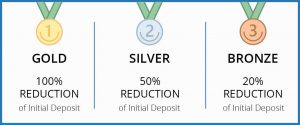What Qualifies A Spouse For Alimony?
Alimony, also known as spousal support, is financial assistance that one spouse may be required to provide to the other post-divorce to mitigate any unfair economic effects by providing a continuing income to a non-wage-earning or lower-wage-earning spouse. Here’s how eligibility for alimony is determined in Colorado, California, and Texas:
Colorado Spousal Maintenance
In Colorado, alimony is referred to as “spousal maintenance.” A spouse may qualify for maintenance if they lack sufficient property to provide for their reasonable needs and are unable to support themselves through appropriate employment, or are the custodian of a child whose condition makes it appropriate for that parent not to seek employment outside the home. The amount and duration of the maintenance are influenced by the length of the marriage and the financial circumstances of both parties.
California Alimony
California determines alimony based on the recipient’s “marital standard of living,” which aims to allow the spouse to continue living in a similar manner as during the marriage. Factors considered include the length of the marriage, the financial needs and resources of each party, and the age and health of the parties. Generally, longer marriages may result in longer periods of alimony support.
Texas Spousal Maintenance
Texas applies more stringent criteria for alimony, officially termed “spousal maintenance.” The spouse seeking support must show that they will lack sufficient property at divorce to provide for their minimum reasonable needs. Eligibility may also depend on whether the spouse from whom maintenance is sought was convicted of family violence shortly before or during the divorce process, or if the spouse seeking alimony cannot earn sufficient income due to a disability, the care of a young or disabled child, or another compelling reason.







